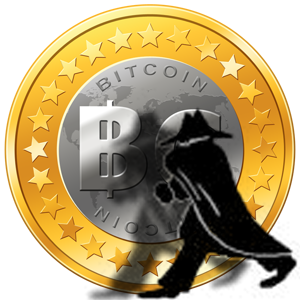 NEWS
NEWS
 NEWS
NEWS
 NEWS
NEWS
![]() The Australian anti-money-laundering watchdog the Australian Transaction Reports and Analysis Centre (or AUSTRAC) issued a report in July that assigned a higher priority of concern to virtual currencies such as World of Warcraft gold and Bitcoin. This isn’t something entirely unexpected by both economists and experts on virtual currencies, after all hackers and others have used alternate-currencies for a very long time from boxes of Tide detergent to pre-paid phone cards.
The Australian anti-money-laundering watchdog the Australian Transaction Reports and Analysis Centre (or AUSTRAC) issued a report in July that assigned a higher priority of concern to virtual currencies such as World of Warcraft gold and Bitcoin. This isn’t something entirely unexpected by both economists and experts on virtual currencies, after all hackers and others have used alternate-currencies for a very long time from boxes of Tide detergent to pre-paid phone cards.
Virtual currencies with their anonymity and capability of possessing value and transferring it under the radar would certainly become a watershed for both legitimate and illegal use—in fact, Bitcoin has been tauted as a way for people in tyrannical countries with controlled economies to exchange value. Criminal economies function in a very similar way.
The report for AUSTRAC seems to reflect this in short and in long, Rohan Pierce from Computerworld has the full story, but here’s the gist:
“While the nature and extent of money laundering through digital currencies and virtual worlds are unknown, it is important to recognise their potential for criminal exploitation, particularly in response to tighter regulation of established or traditional financial channels,” the report stated.
“At this stage, the misuse of digital currencies and virtual worlds for money laundering is still very much an emerging vulnerability,” AUSTRAC CEO John Schmidt says. “That said, AUSTRAC has undertaken research into the potential money laundering threats posed by electronic payment systems and new payment methods.”
Bitcoin’s presence as a functioning, worldwide technology was also highlighted by the FBI’s report on the matter in April. In a report entitled “Bitcoin Virtual Currency: Unique Features Present Distinct Challenges for Deterring Illicit Activity” the FBI outlined how Bitcoin and other virtual currencies could be used for money laundering and other illicit uses as it true for any technology that ignores centralized and regulated banking. It presented a much more optimistic outlook on the use of these technologies by emerging markets above and beyond the dark underbelly and seed criminal undergrounds.
Virtual Currencies Supply Real World Value With Few Limits
The report didn’t just focus on Bitcoin, of course, as virtual currencies in video games also hold value in a very similar way—with the exception that it’s much more ephemeral and can be wiped out by the massively multiplayer game providers who control the source of the currency. The game World of Warcraft and many other MMOs have built in economies, and games such as Entropia Online and Second Life have the capability to exchange virtual currencies for real money; finally games such as Diablo 3 have begun to open up Real Money Transfer auction houses for virtual items.
The list goes on in how virtual currencies are reshaping how people look at money in the digital and Internet era where virtual items as well as virtual money has value outside of national boundaries or regulated currencies.
China, Korea, and India have real outfits of gamers sitting around in sweatshop conditions playing games such as World of Warcraft to generate in game gold and win virtual items to sell to people (against the TOS of the games) for USD and Euros. There’s a real market and economy around items that exist entirely within the confines of video games and no doubt money laundering is done that way.
If Bitcoin is being seen by watchdogs and by criminal organizations have having enough solvency and internal consistency to be akin to a currency inside a video game then it’s a sign that it’s beginning to catch on in the ways that people want it to. After all, USD and bank accounts are the primary source of money laundering (they are the money of choice).
It’s a brave new virtual economy out there.
Support our mission to keep content open and free by engaging with theCUBE community. Join theCUBE’s Alumni Trust Network, where technology leaders connect, share intelligence and create opportunities.
Founded by tech visionaries John Furrier and Dave Vellante, SiliconANGLE Media has built a dynamic ecosystem of industry-leading digital media brands that reach 15+ million elite tech professionals. Our new proprietary theCUBE AI Video Cloud is breaking ground in audience interaction, leveraging theCUBEai.com neural network to help technology companies make data-driven decisions and stay at the forefront of industry conversations.